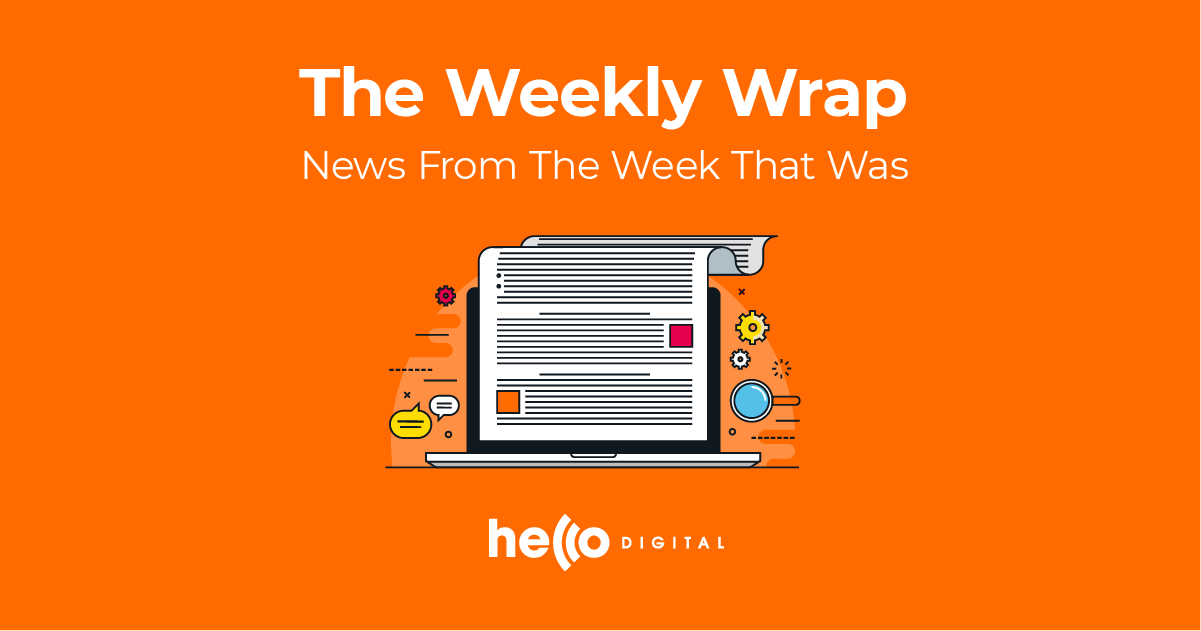Hello Digital looks at the highlights from the week that was.
It’s been another Google-heavy week in digital news, with announcements being released about Core Web Vitals, new features for Search ads, and a study from Monash University about how Google stands up to its competitors.
Keep reading for the latest in digital.
All Core Web Vitals benchmarks need to be met for Google’s new ranking boost
Core Web Vitals has been the big thing on SEO’s minds for a while, with the update becoming Google’s new standards for evaluating whether a page provides a good user experience. But now it’s been announced that all three of the Core Web Vitals benchmarks must be met in order to qualify for the ranking signal boost rolling out in May this year.
In others words, there will be no point focusing your energies on one benchmark if the others haven’t been met.
The metrics they’ll be tracking consist of:
- Largest Contentful Paint (LCP): This measures the speed at which a page’s main content is loaded. The benchmark is 2.5 seconds of landing on a page.
- First Input Delay (FID): This measures the speed at which users are able to interact with a page after landing on it. The benchmark is within 100 milliseconds.
- Cumulative Layout Shift (CLS): This measures how often users experience unexpected layout shifts on the page. The benchmark is that pages should maintain a CLS of less than 0.1.
The topic came up at Google Search Central SEO at the end of last month, with Google’s John Mueller confirming that all minimum requirements need to be met to benefit from the upcoming algorithm update.
You can read more about it on Search Engine Journal.
Facebook will start reducing political content in News Feed
Facebook has started testing the News Feed with reduced political content. On Wednesday they announced that they will launch the test in response to concerns about the impacts of divisive political debates on the platform. Given the political climate in the U.S. and even past events like the Cambridge Analytica scandal, it’s not surprising that platforms are taking more permanent action against inflammatory political discourse.
Facebook explained the test in their announcement:
“As Mark Zuckerberg mentioned on our recent earnings call, one common piece of feedback we hear is that people don’t want political content to take over their News Feed. Over the next few months, we’ll work to better understand peoples’ varied preferences for political content and test a number of approaches based on those insights. As a first step, we’ll temporarily reduce the distribution of political content in News Feed for a small percentage of people in Canada, Brazil and Indonesia this week, and the US in the coming weeks.”
We’ll have to wait to see when it’s rolled out for Australian users, but it will likely follow soon.
Google has launched lead forms for Search ads
Lead forms have been used on platforms like Facebook for a while, but now Google has announced that they will be rolling out their own version of lead forms for Search ads. Rather than guiding users to a landing page, the pop-up form will gather their information and share it directly with advertisers. After filling out the form, potential customers can choose to visit the website or return to the search results page.
The feature has been available to select Google Ads users for some time, but it was still in beta testing. As of February 10th though, they announced that all advertisers can start adding lead forms to their Search campaigns. There are eligibility requirements involved however, so make sure you check if the option is suitable and available to you.
For more on the feature, take a look at Google’s announcement.
Research finds that Google’s search engine might not be as good as its competitors for news
In a turn of events, Monash University has released findings that Google’s search engine is not as good for news as its competitors. Through their research, they found that Bing and Ecosia delivered substantially more professionally produced news in the top 50 results compared with Google. This comes as the standoff between Google and the Australian Government around the proposed news media bargaining code continues.
It’s been suggested that Australians trying to stay up to date with news are better off using other search engines, even though Google is still holding the search market share. While it’s still too early to say whether Bing and Ecosia are up to the task of replacing Google, it’s an interesting consideration for Australian search users.
As part of the research, Monash University looked at search results on Australia Day, with “Grace Tame” being the most popular search term on Google (she had just been made Australian of the Year). They found that the first 50 results delivered by Google included only 70% of professional news websites, while Bing featured 94% for the same search term and Ecosia featured 82%.
You can read more about the research results on The Guardian.
